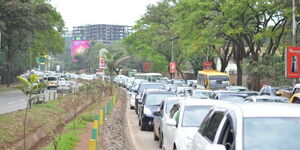The Social Health Insurance Fund (SHIF) is facing financial struggles five months after its rollout, according to the Ministry of Health.
SHIF, which replaced the National Health Insurance Fund (NHIF) in October last year, has faced numerous challenges, but for the first time, the government has openly admitted the delay in clearing patient payments stems from a funding crisis.
While addressing the press at Afya House on Wednesday, February 12, Health Cabinet Secretary Deborah and the Director General of Health Dr Patrick Amoth revealed that of the 19 million Kenyans registered with the national scheme, only 3.3 million Kenyans are contributing to the scheme.
“Health services are expensive, and we cannot only have those in formal employment bearing the burden of the rest of the Kenyan population,” said Dr Amoth.
The officials are now warning the low contributions will lead to disruption of services and want all Kenyans to shoulder the burden.
He went on to add, “We appeal to everybody who was registered to ensure that they go through the means testing process, generate their premium, and actually commit to paying that premium.”
While it is unclear how much SHIF has received from deductions so far, the Ministry of Health had projected that the new model would raise approximately Ksh133 billion annually, compared to the Ksh78.8 billion collected by the NHIF in 2023.
This is because the law mandates that all Kenyan households contribute 2.75 per cent of their income towards health insurance.
Already, the shortage of funds has been felt, with private healthcare facilities reporting financial difficulties due to delayed or lower-than-expected payments from SHIF.
A survey by the Rural and Urban Private Hospitals Association found that more than half of the facilities received less than Ksh100,000 from SHIF, which is insufficient to cover operational and payroll expenses.
Kenyans have also expressed concerns that the benefits provided under SHIF do not align with the increased contributions.
For instance, coverage for inpatient services is limited, with a daily allowance of Ksh2,240 for a maximum of 180 days per household annually. This is seen as inadequate compared to the higher limits offered by private insurers.
The Ministry of Health has established the Benefits Package and Tariffs Advisory Panel to be based at the University of Nairobi, which will, among other roles, review the benefits package. The panel will serve as a critical advisory body to guide decisions around the SHIF.












